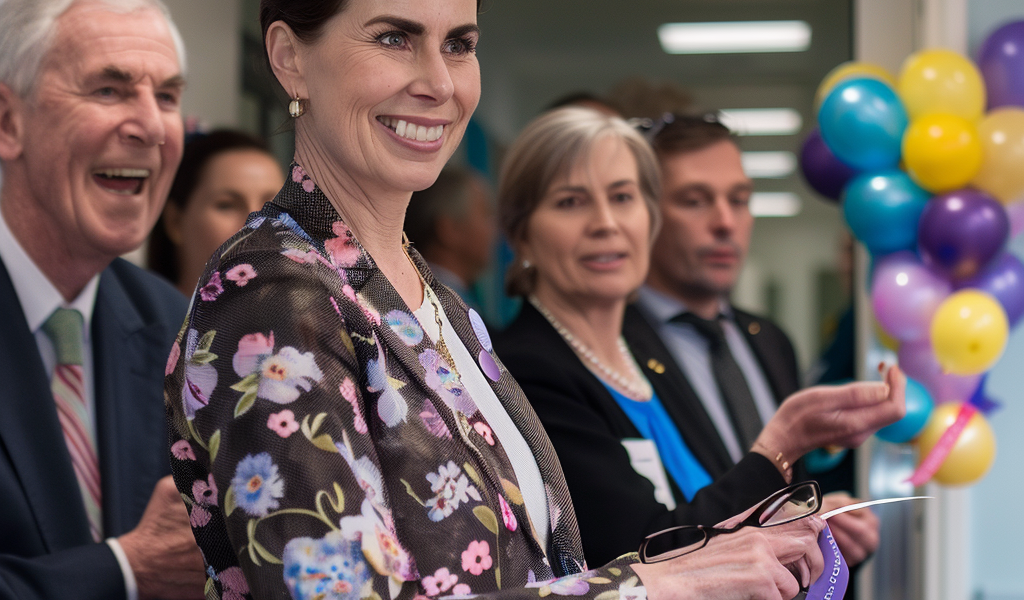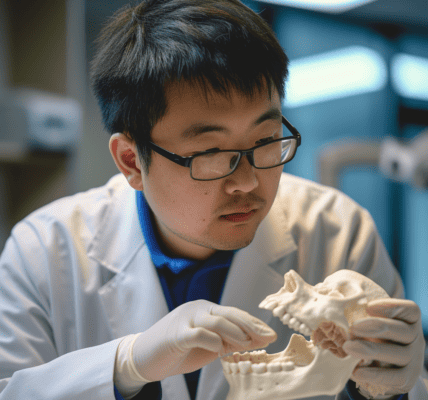A new specialized ward for dementia patients has officially opened at the Queen’s Medical Centre (QMC) in Nottingham, marking a significant advancement in geriatric care. The newly established geriatric assessment unit, which comes with a price tag of £9.8 million, aims to expedite the treatment and discharge process for older patients, particularly those living with dementia.
The innovative unit was inaugurated on Thursday, with actress Vicky McClure, known for her role in the popular series ‘Line of Duty,’ taking part in the ribbon-cutting ceremony. McClure’s personal connection to the cause is profound; her grandmother has been diagnosed with dementia. Joining her was 94-year-old Stanley Metcalf, a retired policeman, who also participated in the ceremonial opening.
The new ward is designed to accommodate patients more efficiently, with the goal of discharging them within 72 hours of admission. This initiative is part of a broader strategy by Nottingham University Hospitals (NUH) NHS Trust to reduce waiting times and alleviate the pressures faced by healthcare providers.
At the opening, the atmosphere was uplifted by a performance from the Our Dementia Choir, which McClure had formed for a BBC One documentary. The choir led attendees in a sing-along of the classic song “Sweet Caroline,” further emphasizing the importance of community and support in the journey of those affected by dementia.
McClure expressed her frustrations regarding the current state of dementia care, highlighting the urgent need for improved facilities and services. She stated, “It’s getting harder. I really hope there’s going to be a drastic change soon because the numbers [of people living with dementia] are only going to increase, and that is why this ward is so important.” Her comments resonate with many families facing similar challenges as the prevalence of dementia continues to rise.
The geriatric assessment unit has been constructed in a repurposed space that previously housed medical files. It features four beds in each bay, allowing for a more spacious environment conducive to patient care. Key design elements have been incorporated specifically for dementia patients, including bright yellow toilet doors for easier navigation, clocks displaying the day and date in each room, fall-prevention furniture, and circadian lighting that mimics natural outdoor light.
The first patient admitted to the new unit was 96-year-old Jean Scarrott from Wollaton, who was treated after a fall at home. Following her stay, she has since been discharged and is recuperating at home, showcasing the unit’s effectiveness in providing timely and appropriate care.
Prior to the opening of the unit, NUH staff reported severe winter pressures, with some patients being kept on trolleys in corridors due to a lack of available beds. Dr. Tasso Gazis, the divisional director for medicine at NUH, emphasized the importance of reducing emergency department wait times, particularly for frail elderly patients and those with dementia. He noted, “One of the most harmful things we can do is keep people in the emergency department longer than they need to be, and that goes double for frail, older people and people with dementia.”
The new unit is expected to help patients return home sooner with appropriate care arrangements in place, reducing unnecessary hospital stays. Dr. Gazis further explained that extended hospital stays can lead to deconditioning, which can significantly impact the recovery and overall health of older adults.
As the demand for specialized dementia care continues to grow, the opening of this unit represents a proactive step towards meeting the needs of an aging population. The commitment to improving care standards and creating supportive environments for patients reflects a broader recognition of the challenges faced by those living with dementia and their families.
With the establishment of this geriatric assessment unit, Nottingham is setting an example for other healthcare providers, demonstrating that with the right resources and focus, it is possible to enhance the quality of care for some of the most vulnerable members of society.





